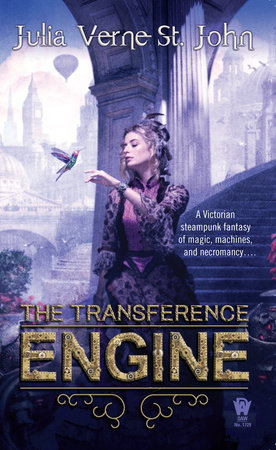Sisters of the Fire by Kim Wilkins
Fantasy literature seems to have entered an age of
multi-volume series that either demand the reader be familiar with all the
previous books or else inundate the reader with backstory. It requires skill
and subtlety to create a sequel that works just as well as a stand-alone book.
Kim Wilkins is such an author and Sisters of the Fire is such a book.
Australian Kim Wilkins is one of the best writers of fantasy
today. I adored her The Autumn Castle for its rich, complex characters and a
setting that was familiar enough so I was never confused and startlingly
innovative enough to hold my interest at every turn. So it was no accident that
even without reading Daughters of the Storm, I found Sisters of the Fire every
bit as entrancing, dramatic, and rewarding.
Almost immediately I found myself immersed in a world
reminiscent of Arthurian England. An island is divided into small kingdoms,
some of them so marginal but it is not worth the trouble to conquer them. Of
course, there are stronger kingdoms, and one of these is ruled by an aging
monarch whose grown daughters have made their own ways through the world. Ash has
followed her dream to become a magician by apprenticing herself to a strange,
ultimately villainous man. Lovely Rose has fled an unhappy marriage at the cost
of exile from her young daughter and her beloved. Ambitious Ivy, married to a
man she does not love for the sake of a political alliance, plays a dangerous
game that threatens the safety of not only her kingdom, but her father’s as
well. Willow’s hatred of the old religion leads her to a perilous alliance with
the head of the Viking-like northern raiders. And my favorite: Bluebell who
despite the whimsy of her name is a fierce warrior and intrepid leader, more
than capable of taking over for her aging father.
This story moves from moments of tenderness to passion to
intrigue to breathtaking action. Never did I feel at a loss because I had not
read the first book. Nevertheless, I was delighted to learn that that this will
not be the end of the sisters’ adventures. I look forward with great
anticipation to seeing where Wilkins will take the story, and while I am
waiting I will go in search of the first volume.

historical mystery was my introduction to the work of
British author Amy Myers. First released in 1999, one of ten adventures of
intrepid chef and not-so-intrepid detective, Auguste Didier, it’s now available
as an ebook from Endeavor Press. The
year is 1905, and already rumblings of war have reached even the placid English
countryside. Didier, a distant relation-by-marriage to Edward VII, has been
summoned to an ancient manor house to cook for a wedding. Only the groom posing
as the lord of the manor in order to impress his American heiress bride no
longer owns the estate and the man who does bears an uncanny resemblance to
Didier’s sworn enemy, a ruthless Russian spy. What could have been a sedate
whodunit confined to a single household quickly spins into a much broader tale
that eventually leads to the Paris catacombs (I’ve been there – they’re just
like that!) and back to England. Action and character are handled with a
delightful wit and wonderful use of language that left me wanting to run out
and find all the other volumes.

The Tale of the Dancing
Slaughter Horse, by Victoria Shade (Oct 2016)
When adolescent Victoria meets Moonshine, an ex-racehorse
saved from the slaughterhouse and abuse, she despairs at having to ride such a
difficult horse. She trains him in dressage, a sport that tests the unity of
horse and rider as they engage in what can only be called dancing. As she comes of age, Victoria teaches
Moonshine to trust her, and Moony teaches Victoria the importance of heart and
perseverance. Together, they master many trials and compete in the Junior
Nationals in this inspiring and compelling true story of how a girl and her
horse changed each other’s lives forever.
This is a lovely book, not only for horse fanciers (and
anyone who has ever been one) but as a simply told, heart-felt memoir of an
extraordinary young woman and the healing power of horses. Like many other
teenaged girls, I fell in love with horses, and although my own mare was
nowhere near the stature of Victoria Shade's Moonshine, her tale of how
dressage helped her to grow, and learn patience, diligence, and honesty, had me
nodding in agreement every step of the way. The simplicity and directness of
her prose transforms what could have been a melodrama into an inspiring,
utterly truthful story. Well done!
This book offers intriguing
twists on the usual dystopic YA novel, with its economy based on the creation,
sale, and control of dreams. I particularly liked the use of dreams as work
incentives, and nightmares as punishment, plus the addictive nature of dreams to
the point that people cannot sleep normally. However, the work is marred by
heavy-handed exposition, telling repeatedly instead of showing, the lack of
world-building beyond the dream economy, and simplistic characters. I do not
believe this novel would have been publishable by any major house, as it
certainly has not been professionally edited. I hope that with more attention
to craft, the writer will become better able to justice to her ideas.
Shadowbahn, by Steve Erickson, Blue Rider Press (Feb.
2017)
Premise: the Twin Towers mysteriously appear on the Badlands
of South Dakota, from them comes a stream of music, and everyone hears a
different song. Isn’t that a cool idea? I thought so when I requested a review
copy. I imagined something of the order of
a Tim Powers novel, with flights of wacky imagination resolving into a story
that moves me, with characters I care about. Alas, it turned out that I was
exactly the wrong reader for this book. Reviews, even “not my cup of tea”
style, can help readers pick books they will love, so I offer the following:
At first, the story drew me in but midway through I grew frustrated.
The music, as it were the uniting theme of all the various characters and
adventures, turned out to be exactly the kind I have almost no knowledge of (I
have heard of a few of the songs and recording artists but could not recognize
them) or interest in (not even a passing nod to Chopin!), and the text was
laced with long stream-of-consciousness diatribes that became ever more
tedious. I found the characters unbelievable and pretentious. I kept hoping to
find some saving point of sense, but it never appeared.
If you like Jonathan Lethem’s work (he praised this one
highly), this might be the book for you. I imagine that if you love rock music,
jazz, and blues, you will find special delights here. But if you, like me,
prefer sympathetic characters and clear plot, logic, and emotional arcs,
then you might want to pass on this one.













